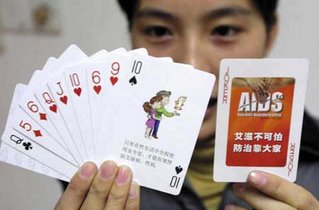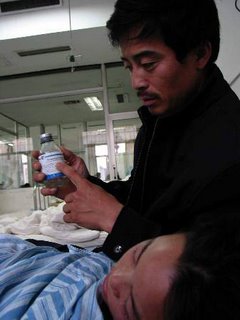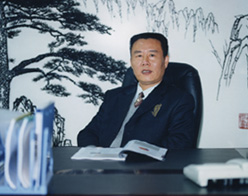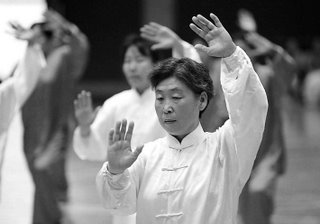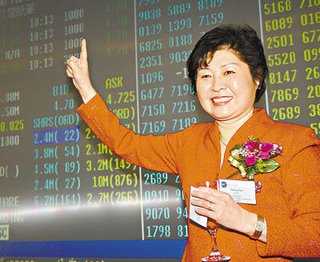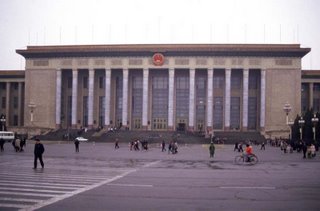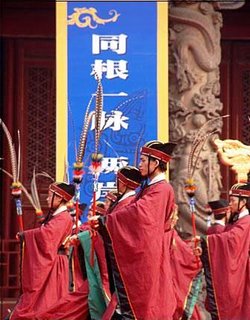 The Dalai Lama and Barbara Walters
The Dalai Lama and Barbara Walters(ABC News / Rob Wallace)
In a rare appearance on American national TV, the Dalai Lama talked with famous TV journalist Barbara Walters about his belief in heaven, and even received a kiss from her in a program aired Friday night on ABC.
The program, “Heaven----Where is it? How do we get there,” was ABC’s special presentation, in which Ms. Walters talked with religion leaders from around the world in search for the idea of heaven in different religions, including Christianity, Judaism, Buddhism and Islam.
To do the show, she recently traveled half way around the world to a remote comer of northern India, where the Dalai Lama is living in an “out-of-the-way village.”
Standing in front of a two-story white villa, Ms. Walters saw the Dalai Lama slowly stepped down the stairs in his lama robe, with smile on his face.
“Welcome,” the Dalai Lama greeted Ms. Walters in English, and grabbed her hands and held them for a while, like meeting an old friend who he hadn’t seen for a long time.
Ms. Walters called him “your holiness” and thanked him for allowing them to visit him, something the religion leader does not do very often. Their talk, as aired last night, was purely spiritual, touching nothing about politics.
Besides discussing Buddhism belief of heaven, the show also provided a glimpse of the famous lama’s personality.
Using his somewhat awkward, sometimes broken, but still understandable English, the 71-year-old Dalai Lama told Ms. Walters that he was not living God as many of his followers deemed him.
“No. Certainly [I’m not God],” he said and giggled. He took off his glasses and said if he was God, he would not have to wear glasses to be able to see well. He said he was a teacher, teaching Buddhism.
Not only that he was not God, the Dalai Lama said he had not reached the stage of being enlightened, either. In other words, he saw himself still far away from the highest status of Buddhism pursuit, Buddhahood. Instead of knowing everything, he told his American visitor, he could not tell what was going to happen the following night, and he forgot what happened the day before.
“I always consider myself as another human being. Nothing special, nothing more,” he said.
The Dalai Lama also acted more like a caring teacher than a mighty religion leader, who some people believe to even have super power.
He giggled throughout the interview, which made him look very easy-going, happy and amiable. Ms. Walters thus described him as a “charming and charismatic leader,” with “an infectious giggle.” Despite English talk and lama dress, his manner was very similar to those highly-esteemed figures at his age in China. He also had an optimistic view of today’s world, concluding it is “close to heaven.”
Talking with pretty high spirit, the Dalai Lama appeared to be very energetic. He was even not reluctant to show a little bit naughtiness.
At the end of the interview, when Ms. Walters asked him whether it was possible to kiss him on the cheek, he said “okay” without hesitance and accepted the kiss, again, with a laud giggle. And then, he volunteered to show Ms. Walters the New Zealand-style kiss by pressing his nose against hers. While doing that, the two broke into big laugh.
http://abcnews.go.com/2020/Beliefs/story?id=2734704&page=1









